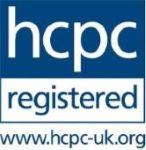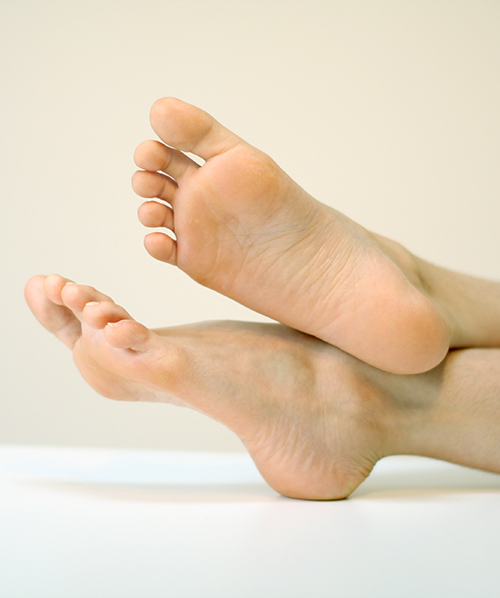






Podiatry is the modern name for what used to be called chiropody, it's a slightly broader term that includes more modern medical treatments and investigations, but essentially, they are the same thing. This branch of medicine was renamed in 1993. Podiatrists and chiropodists are both healthcare professionals who have been trained to diagnose, prevent, treat and help rehabilitate the feet and lower limbs. Podiatrists offer a wide range of services focussed on getting you back on your feet quickly and comfortably, ensuring you are as mobile and as pain-free as possible.
2. What Can You Do For My Athlete's Foot?
Athlete's foot is caused by a common fungus that thrives in moist, warm and dark environments, just like between your toes or the soles of the feet. Untreated Athlete's Foot, or Tinea Pedis to give it its proper name, can cause inflamation of the outer layer of the skin, and cause a white scaly rash that leads to cracking of the skin in the folds of the toes causing itchiness, peeling, burning and an unpleasant odour.
Athlete's Foot often responds well to treatment with over the counter medicines and can be prevented from recurring by ensuring your feet and toes remain dry by changing your footwear regularly and removing shoes whenever possible. After an assessment of the severity of your condition your Podiatrist will recommend a suitable treatment plan and medication, and if required can prescribe stronger medicines than are available over the counter at your chemist.
3. What Is The Best Treatment For Corns and Calluses?
There's no magic bullet for any medical condition, the best treatment option for Corns and Calluses will depend on the severity of the condition, where on the foot they are present and what causes them. We can advise on personal footcare and improved footwear choices to help minimize the presence and feeling of Corns and Calluses and we can also undertake physical treatments to reduce their thickness, size and the amount of irritation they cause. In many cases simple home treatment with a pumice stone or a Callus and Corn file can be sufficient to keep them in check, however, if you are suffering pain rather than just irritation we recommend getting them looked at just to be on the safe side.
4. Do My Ingrown Toe Nails Require Surgery?
Mildly ingrown toenails can often be corrected by changing how you clip your toenails and are a common podiatry/chiropody problem. Toenails should always be clipped straight across. If you trim your nails around the corners the sides of the nails can push down, begin to dig into the skin and may eventually become ingrown.
When you come in for toenail treatment or a new patient assessment our staff will advise on the best treatment for your nails as well as cutting, shaping, clearing and reducing the thickness of problem nails. Should you require toenail surgery to correct an ingrown toenail our staff can book you in following an assessment.
An emergency/out of hours appointment can be arranged if treatment is needed immediately.
5. What Podiatry Treatments Do You Offer For Plantar Fasciitis?
Plantar Fasciitis is the term for the painful inflammation of the ligament that connects your heel to your toes and it's the most common form of heel pain. Once Plantar Fasciitis has been diagnosed we will work with you to create a customized treatment plan that is suited to your specific needs. Most commonly we integrate aspects of rest, elevation, icing, massage, anti-inflammatory prescription, corticosteroid injection, extracorporeal ultrasound, lifestyle modification, weight loss and of course prevention of further reoccurrence through the wearing of orthotic inserts in your footwear to minimize impact damage.
6. Do Podiatrists Provide Wound Care Support?
Podiatrists are experienced and trained in the management of all foot-related medical issues including wound care and dressing application. Whether you need supporting bandaging for a recent physical injury following an accident, regular replacement of antiseptic dressing for a chronic open wound or are looking for Kinesio Taping to help support the active recovery and rehabilitation of a sporting injury, at the Foot Retreat we'll be happy to help.
7. How Is My Personal and Medical Data Protected?
All of your data is stored securely, hard copy files are kept under lock and key in a secure filing safe when not in use and all digital data is stored safely on secure cloud-based servers. The Foot Retreat will not share any of your data without your express prior approval.
For more details see our GDPR and Privacy Policy statements on the website.